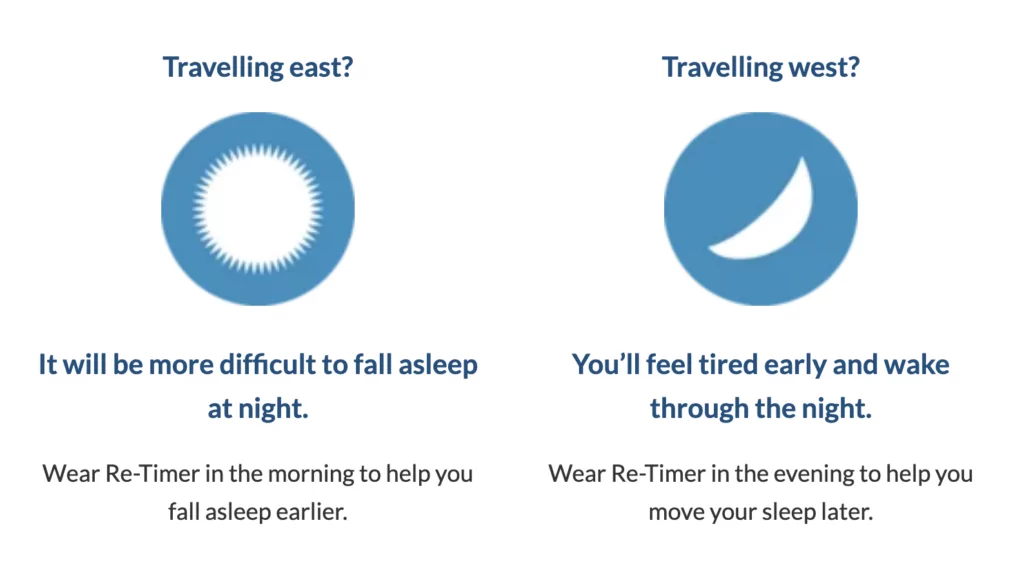Highlights
- Disrupted energy levels, changes in sleep routine, and mood swings are common causes of jet lag.
- Factors like time zone changes and sleep quality contribute to low productivity and enhanced lethargy.
- Using light therapy can re-sync your circadian rhythm and help reset sleep schedules to manage Jet lag effectively.
We all know that jet-setting around the globe is super exciting, right? It’s all about discovering new places, savoring exotic cuisines, and making memories. But have you ever felt like your body is still catching up with you while you & you’re out there chasing the world?
Jet lag is a sneaky side effect of crossing different time zones. It’s the most common occurrence of traveling and yet the most overlooked symptom of these travels.
What is Jet lag?
As soon as you land in a new time zone, your energy takes a nosedive. You’re wide awake at odd hours, yawning in the middle of the day, and your mood is like a rollercoaster. While you know you are experiencing jet lag, there are more causes for concern thanks to your disrupted sleep pattern. Jet lag is a temporary sleep disorder that occurs when your body’s internal clock, known as the circadian rhythm, becomes out of sync with the local time of your new destination as it is still tuned to your pre- travel time zone.

What are the symptoms of Jet lag?
The severity of jet lag varies – it can be a minor annoyance or a full-blown energy zapper and the most common symptoms are :
- Feeling excessively tired and struggling to stay awake during the day, often accompanied by yawning and difficulty concentrating.
- Difficulty falling asleep or staying asleep during the night, even though you may be tired from traveling.
- Feeling the urge to nap or doze off during the day, especially during times when you should be awake and alert.
- Disturbed digestion, including indigestion, constipation, or diarrhea, due to the disruption of your body clock affecting mealtimes.
- Difficulty concentrating, memory lapses, and decreased cognitive performance due to the disruption in your sleep-wake cycle.
It’s important to note that the severity and duration of jet lag symptoms can vary based on factors such as the number of time zones crossed, the direction of travel, individual differences, and how well you adapt to new schedules.
Travelling East or West
Your body clock tends to run slightly longer than 24 hours, says physician Vivek Jain of the Center for Sleep Disorders at the George Washington Hospital. Each morning, your body compensates for this slight discrepancy by contracting your internal clock to synchronize with the 24-hour day light cycle.
When you travel west, you gain several hours, so your day is extended, and your body gets the extra time it naturally wants. But when you travel east, your day is shortened; and makes it harder to adjust, because your body must cut its natural cycle even further, Jain says.
Research suggests you can push your body clock back about two hours per day, i.e., you can adjust from Washington time to Colorado time in a single day, but you can move your body clock forward (as when you travel from California to Washington) only by an hour to an hour and a half each 24-hour period, Jain says.
How does Re-Timer help?
You know you experience jet lag when your circadian rhythm gets all mixed up due to rapid time zone changes. Re-Timer helps you beat Jet Lag symptoms by using special green-blue light therapy to re-sync your internal clock and helps you adjust to the new time zone faster. That means less tossing and turning in your hotel bed and more time to explore, savor, and enjoy your travel experience.








